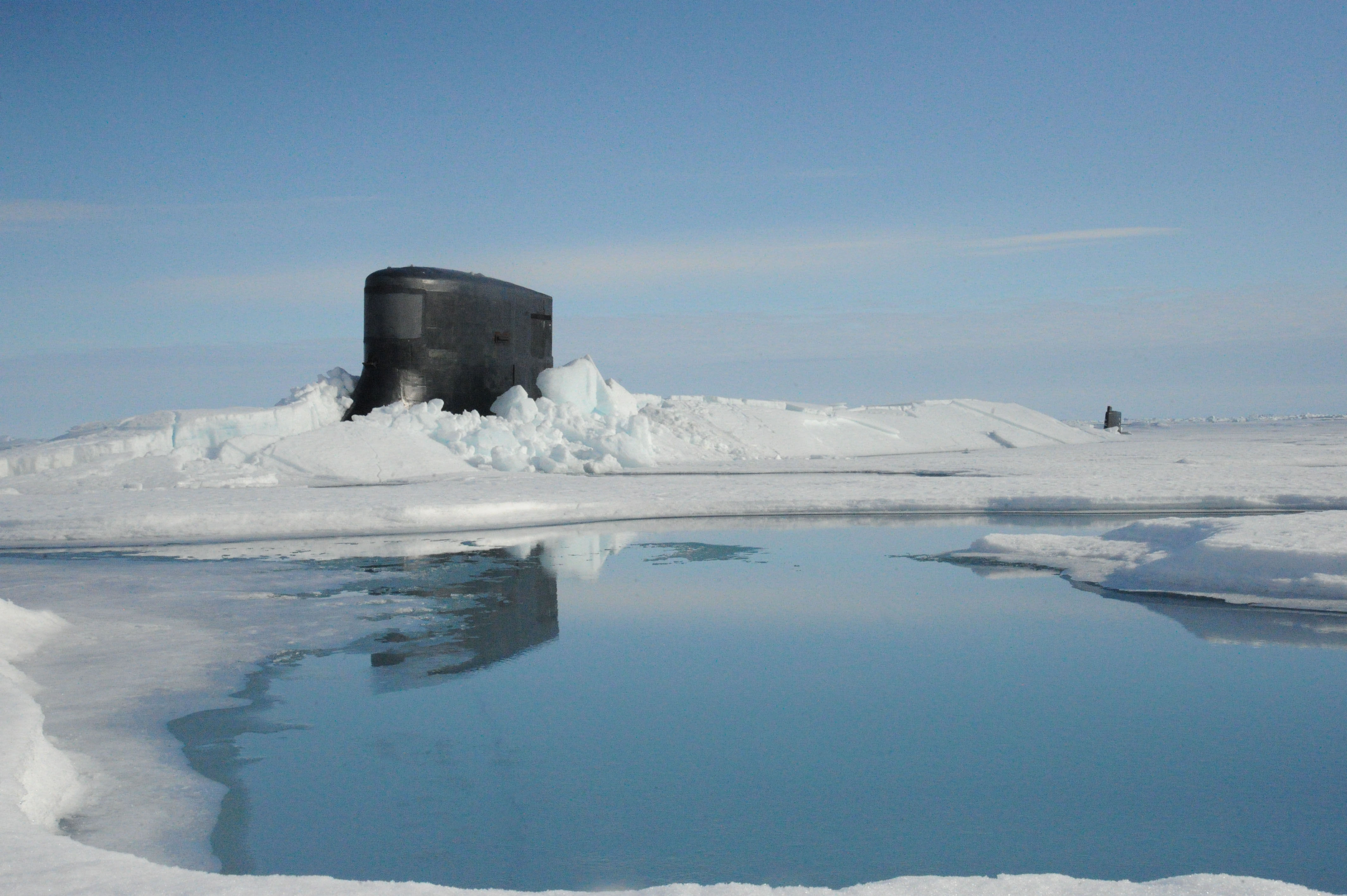
The Center for Strategic and International Studies has proposed creating a military code of conduct in a new multinational forum to discuss security concerns in the Arctic among Russia, the United States and other nations in the region.
Heather Conley, of the Washington, D.C., think-tank and a project author of The New Ice Curtain: Russia’s Strategic Reach to the Arctic, said the region provides 20 percent of Russia’s gross domestic product and 22 percent of its exports, primarily energy and minerals. Just as important is the reality that its “strategic deterrent is based in the Arctic” with the Northern Fleet, headquartered at Severomorsk. The region is also the home to 2 million Russians, largely European. The area includes the important port of Murmansk, with a population of 300,000.
Quoting a Russian deputy prime minister after a recent visit to the north, she said, “The Arctic is Russia’s Mecca.”
From the Russian point of view, Conley added, there are now growing military threats to its interests there. While “60 to 70 percent of Russian military” construction, including search and rescue stations “is understandable,” the dual-use capabilities of some infrastructure work and other activities show an increased focus on anti-access/area denial.
The most troubling developments were the unannounced exercise in March of Russian air, land and maritime assets involving 45,000 service members, a new practice of having military aircraft turn off the transponders to identify themselves and resuming overflights of other nations’ territories without notification.
The security situation “is very different even from 14 to16 months ago,” Conley said. “I would not call it a partnership,” he added, with the other seven members of the Arctic Council, which the United States now chairs. The council relies on consensus among its members and security issues are not in its charter.
Conley said that Russian attention to the Arctic has undergone “wholesale challenges” since 2014 and has become highly centralized in the Kremlin leadership under Prime Minister Vladimir Putin.
Marlene Laruelle, a research professor of international affairs at George Washington University, said historically it has been normal for the Russian state to be proactive in major projects. She added it was understandable that its military and paramilitary were to be heavily engaged because they are “the only ones who are young and have the training.”
Yet “the deterioration of relations with the U.S. and the West [over the annexation of Crimea and Russian-back separatists fighting the Kiev government over control of eastern Ukraine] is visible in the Arctic.”
Steven Lee Myers, correspondent for The New York Times long based in Russia, said, “Russia thinks the United States fired the first shot with energy sanctions” in causing the relationship to shift from partnership to security friction.”
There “was a very deliberate choice to target its Arctic development” when first announced.
“I don’t think it is so crazy to the people in the Kremlin” to think about “an invasion from the north,” he said and added that the Greenpeace protests in 2012 and 2013 could be considered a probe of Russian defenses by some in the leadership.
He also cited German submarine operations in the far north in World War II as adding to Russian perceptions of the vulnerability of its Arctic territory. About 50 percent of the Arctic is in Russia, which recently requested that the United Nations extend Moscow’s seabed claims to keep new waterway routes outside its exclusive economic zone from opening up.
Ships transiting those waters would have to pay Russia.
Later, Laurelle said, “When you invest in military capacity you are probably not investing in sustainability and human capital.”
While President Barack Obama will travel to Alaska next week and Secretary of State John Kerry will head a discussion on climate change and the environment with other Arctic nations in Anchorage, Russia will not be sending its foreign minister there. Instead Russia will be represented by its ambassador to the United States—an indication of the state of the relationship between the two countries.
Yet climate change is a major issue for Moscow. Russia “is trying to figure how to build in resilience” as permafrost disappears, which affects its energy pipelines and causes building collapses in large urban centers such as Murmansk, Conley said.
Myers, in answer to a question, said there was little consensus in the Russian government on climate change or changing its environmental policy to consider this change as long-enduring.
As this is happening, Russia is having to adjust economically to the fact that oil now is selling for about $40 a barrel and the United States no longer needs to import liquefied natural gas from Siberia.
As for China’s growing interest in the Arctic, Laruelle said, Russia welcomed its investments in building land infrastructure for energy but not its interest in exploring Russian waters for development.
Russia, like Shell Oil, “says they’re looking way ahead” in Arctic energy exploration, “but a lot has been put on hold” because current profits are too low to justify the expense.





